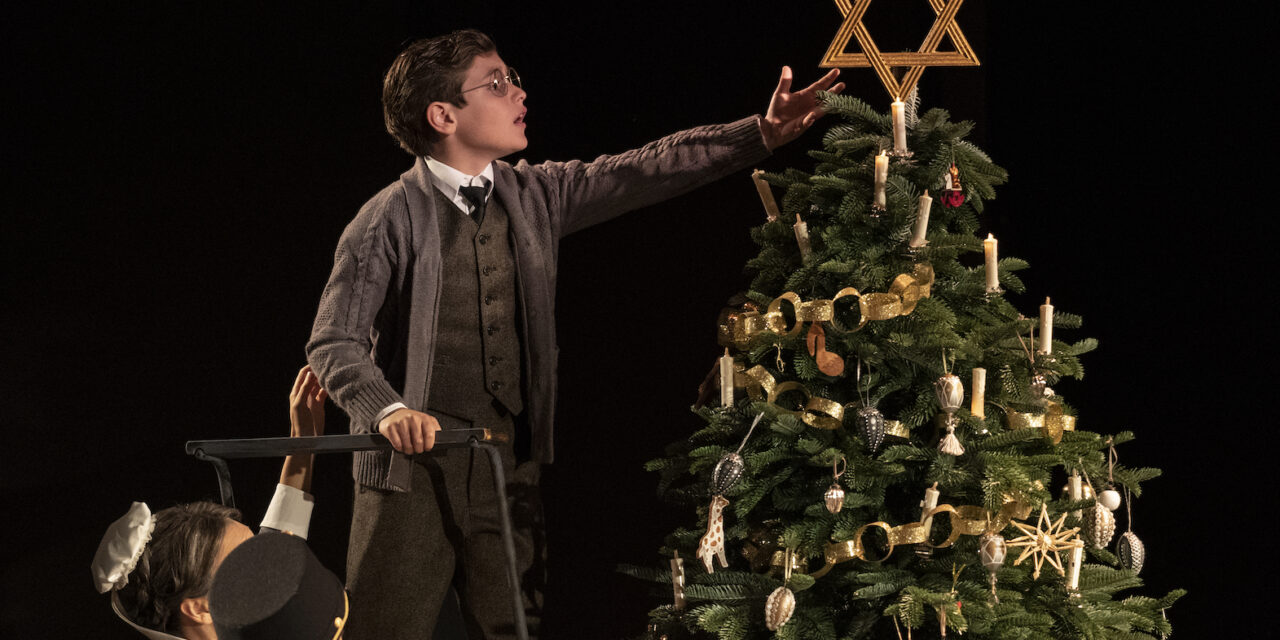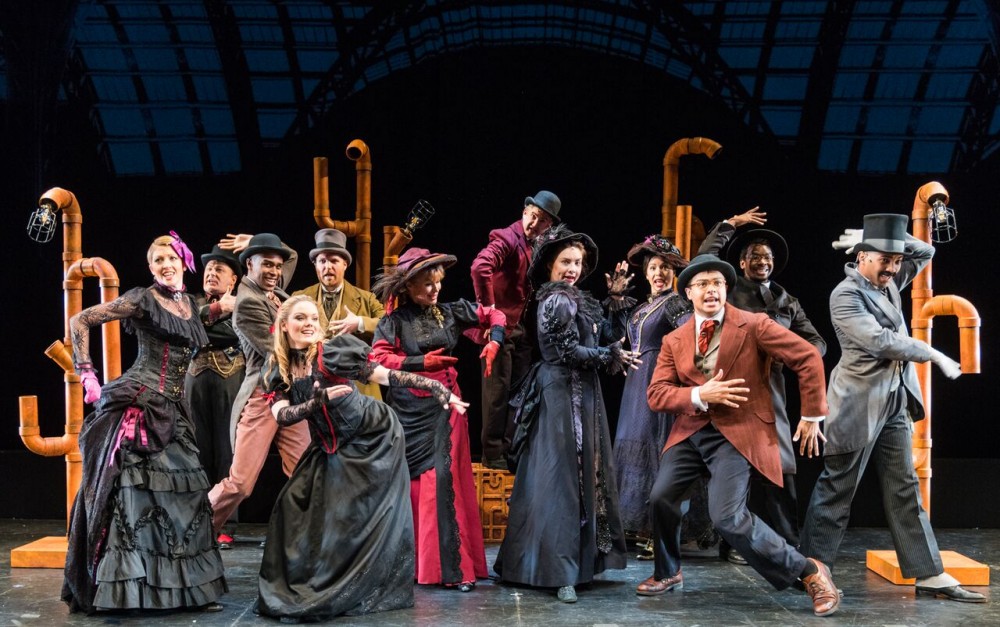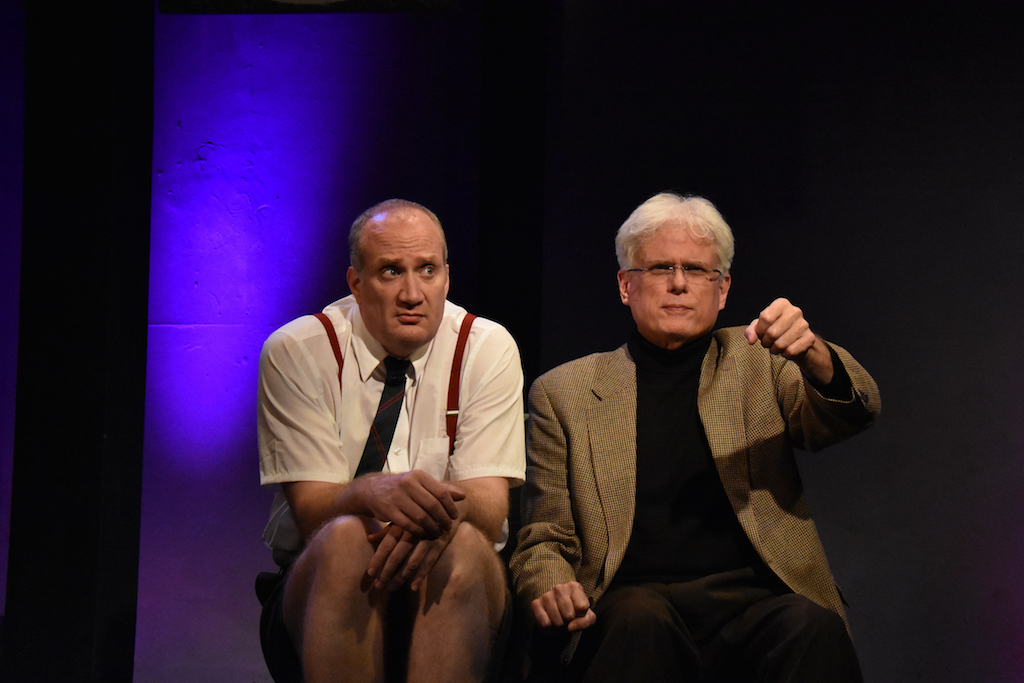EXTENDED THRU JULY 2, 2023
By Carol Rocamora . . .
Rarely does a play come along with the majesty and magnitude of Leopoldstadt, the monumental new work by the celebrated British playwright Tom Stoppard now playing on Broadway after a highly acclaimed run in London’s West End.
Written at the pinnacle of six decades of distinguished playwriting (Stoppard turned 85 this summer), it’s the jewel in the crown of his dazzling dramatic oeuvre, offering a sweeping historical scope, stunning theatricality (a cast of 38), and profound emotional impact.
Set in Vienna, Leopoldstadt follows the fate of two prominent interrelated Austrian Jewish families—the Merzes and the Jakoboviczes— over almost sixty years of tumultuous history. Their urgent issue: assimilation, in the face of the terrifying tidal wave of Nazism that is about to flood Europe and incite a devastating World War II and the Holocaust.
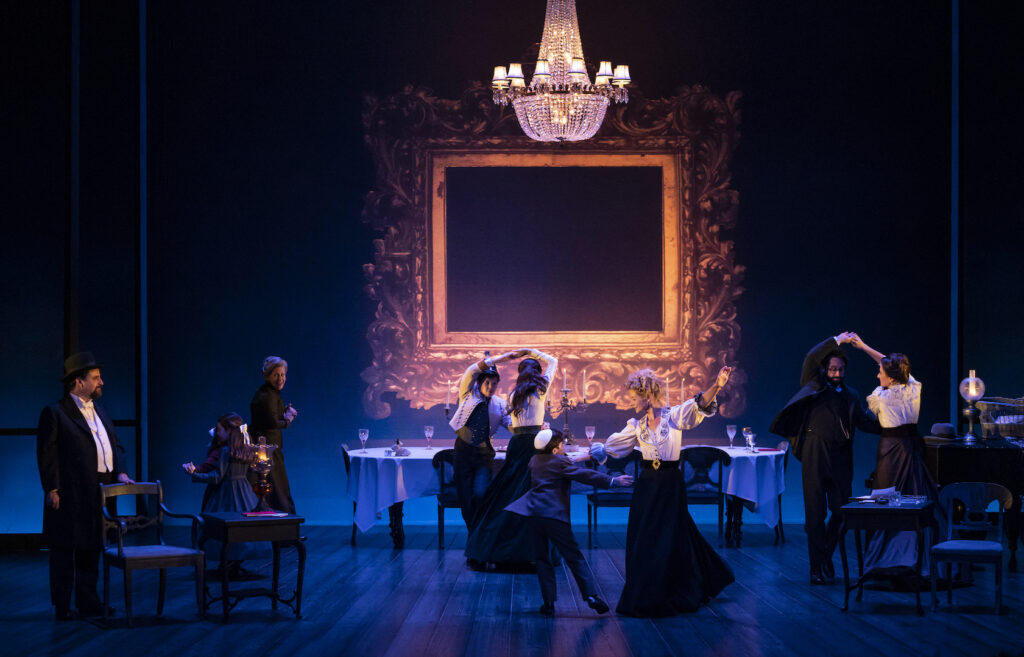
Stoppard divides his historic masterpiece into five acts over a two-hour and ten-minute intermission-less evening. We first meet these two grand haut bourgeois Viennese families gathered together in Hermann Merz’s stately living room in 1899 (the sumptuous set is designed by Richard Hudson). They are celebrating Christmas—well, almost, since one of the swarm of children has erroneously topped the tree with a Jewish Star of David. The conversation (there’s always plenty in a Stoppard play) is lively and optimistic, and plenty of impressive names are dropped, associated with the times and the families (Brahms, Mahler, Klimt, Schnitzler). Together, the prosperous extended family looks to the new centennial with optimism, protected (so they think) by Hermann’s conversion to Catholicism.
In Act 2 (1900), the family participates in a Passover Seder (gorgeously lit by Neil Austin). Cracks in the smooth surfaces begin to appear as an extramarital affair is revealed between Hermann’s wife Gretl and a young (Christian) Austrian officer, who insults Merz to his face. Though everyone present ends up dancing a Viennese waltz, the shadow has already been cast over this comfortable cocoon of Jewish art lovers, mathematicians, intellectuals, businessmen, cultured wives and charming children.
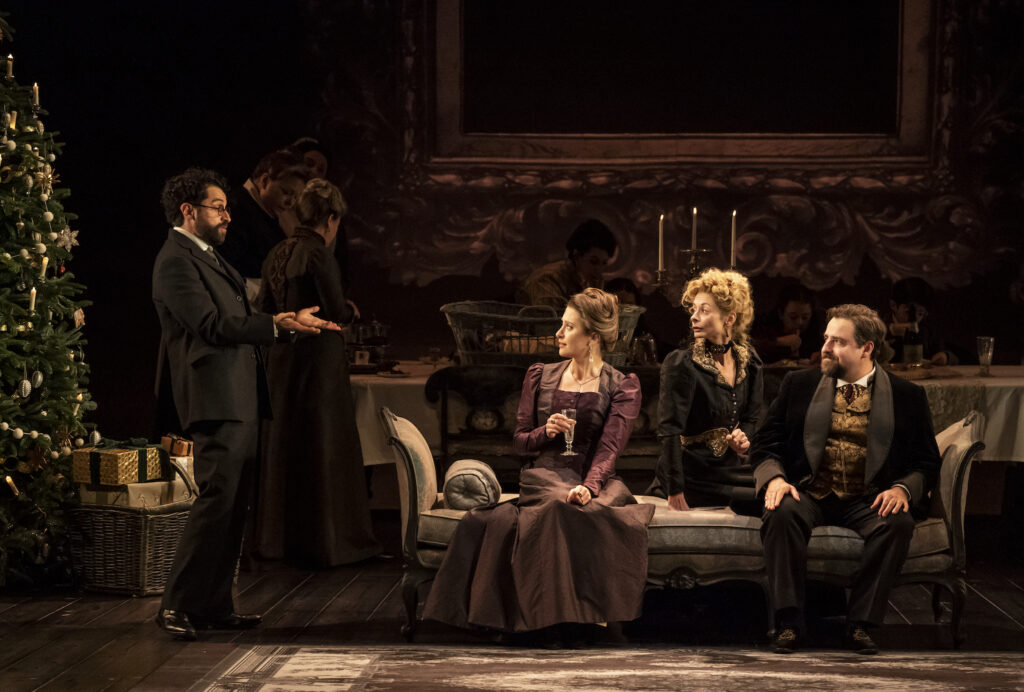

By Act 3 (1924), the shadow is deepening over the family and its new generation. Despite a farcical dilemma that provides distracting humor (a bris is about to take place, or not—it’s still debatable), there is intense discussion of the changing times and Marxism versus nationalism. A warning resonates from Hermann’s agitated son Jacob, telling his family that no matter what will evolve in contemporary history, “the Jews get blamed for everything.” The storm is gathering, the signs are there, but still the family stays.
Then comes the nightmarish Act 4 a decade later, when the notion of leaving Vienna comes too late. Set on November 9, 1938 (Kristallnacht, the Night of Broken Glass), a group of brutal Nazi officials invade the Merz apartment (like so many others in Germany and Austria) and terrorize them, giving them twelve hours to pack up whatever they have in one suitcase each and be prepared for eviction the very next day.
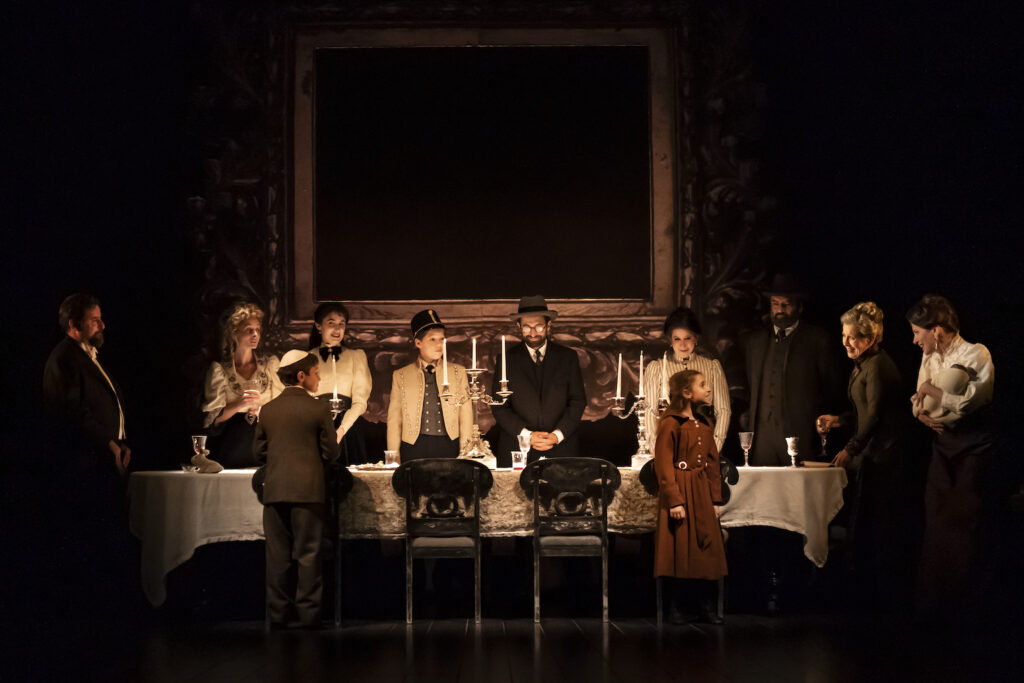

Finally, there is Act 5 and the devastating denouement. Set in 1955, two cousins—descendants of the family—meet in what was once the Merz apartment in Vienna and together face the past . . . or try. They had not seen each other since they were small boys seventeen years ago, in the previous devastating Kristallnacht scene. Nathan has somehow survived the Terezin and Auschwitz concentration camps, where his entire family was lost. He confronts his cousin Leopold—whose family had fled to England and changed his name to Leo Chamberlain to ensure his assimilation there. “You live as if you have no history,” cries Nathan, challenging Leo to confront his past, as Nathan recites a kind of mourner’s Kaddish for all their relatives who perished either in concentration camps or by their own hands.
Leopoldstadt (its name refers to a section of Vienna that was home to many Jews in the early 20th century) should be hailed as a great new play of this tragic period of history. But it acquires an even greater magnitude and deeper dimension when one discovers that the source of its inspiration is largely autobiographical.
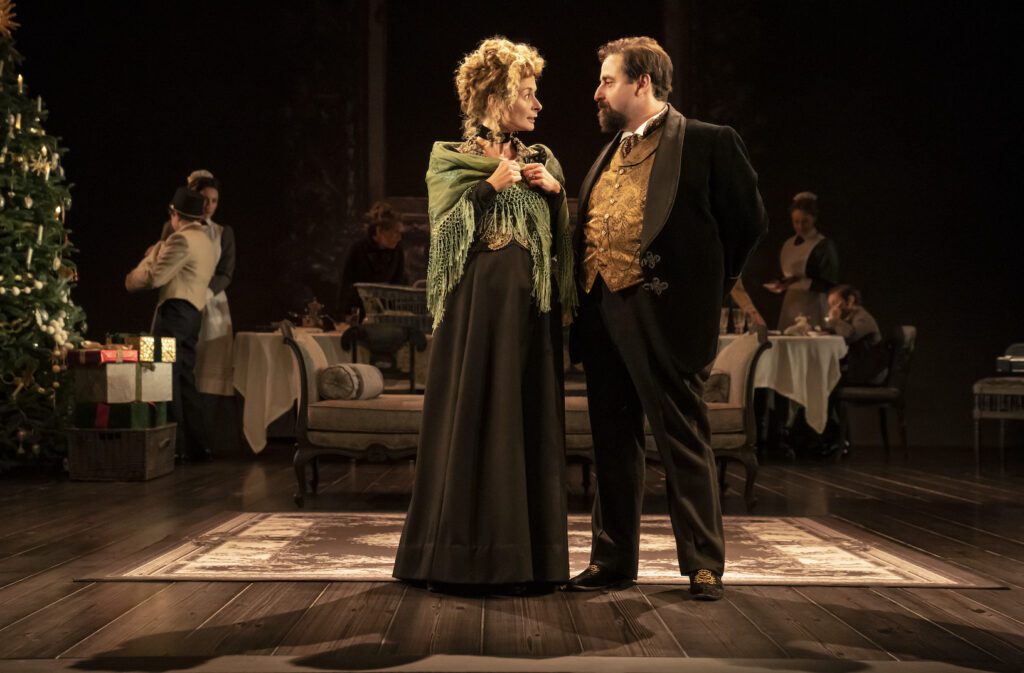

Playwright Tom Stoppard (knighted by Queen Elizabeth in 1997) was actually born Tomas Straussler, a Jew, in Zlin, Czechoslovakia in 1937. His parents fled from the Nazis to the Far East when he was three, where his father was tragically killed. His mother (left alone with two little boys) met and married British Captain Stoppard who brought them to England, where eight-year-old Tomas’s name was changed to Tom Stoppard and he assimilated into the English culture. It wasn’t till the 1990s that Stoppard fully learned of his Jewish identity and the fate of his four Jewish grandparents, who died during the Holocaust along with other relatives.
By then, Stoppard had already written numerous plays on a head-spinning variety of topics and tonalities, mostly comedic—from theater of the absurd (the devilish Rosencrantz and Guildenstern, 1966), to the philosophical Jumpers (1972), to the Gilbert-and-Sullivan-style Travesties (1975). Up to that point, Stoppard the man had stayed invisible, almost playfully, hiding behind his varied subject matter and his brilliant, artful language (the only possible exception being The Real Thing [1982], about love and marriage).
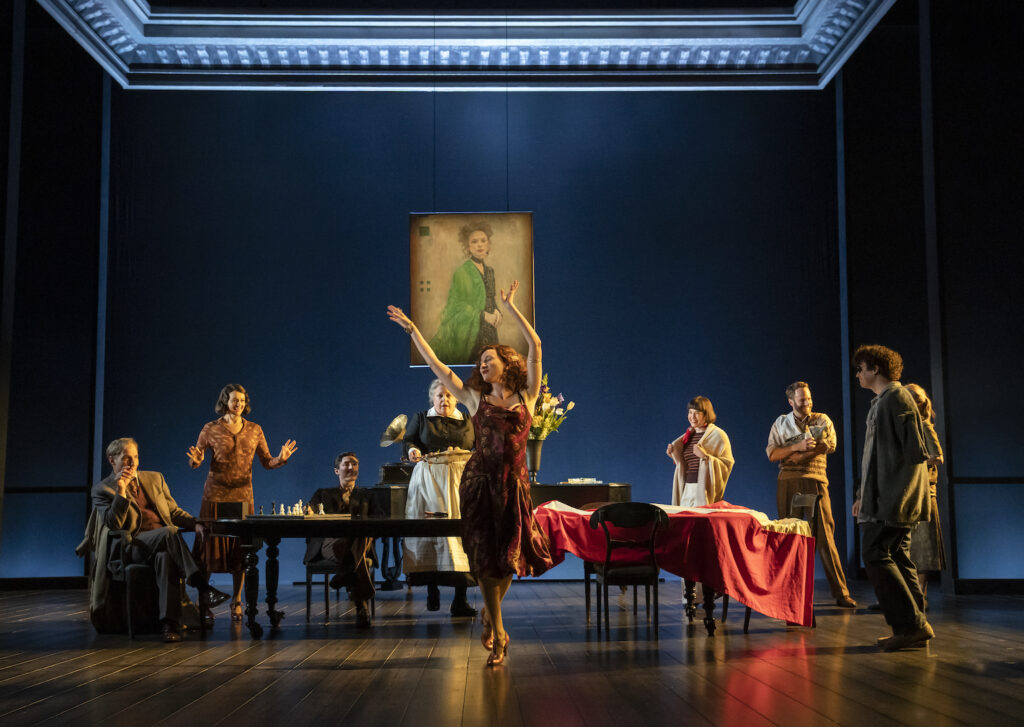

After he learned of his Jewish identity, Stoppard went on to tackle broader historical themes—Arcadia (1993) with its millennial vision of how time and knowledge work; and Coast of Utopia (2002), a nine-hour epic of Russian 19th-century intellectual history. In Rock ‘n’ Roll (2006), his play about resistance to communism in Czechoslovakia from 1968-1989, he begins to consider his origins and imagine what his life might have been had fate kept him in his place of birth.
But it is now, with Leopoldstadt, his masterpiece, that Stoppard has come out from behind the curtain with a play that addresses his identity and emerges directly from the heart. The masterful artistry supporting this production—Patrick Marber’s skilled direction, Richard Hudson’s stately set, the stellar ensemble of 38 actors, Isaac Madge’s historical projections—all enhance the profound emotion that has given birth to this great work.
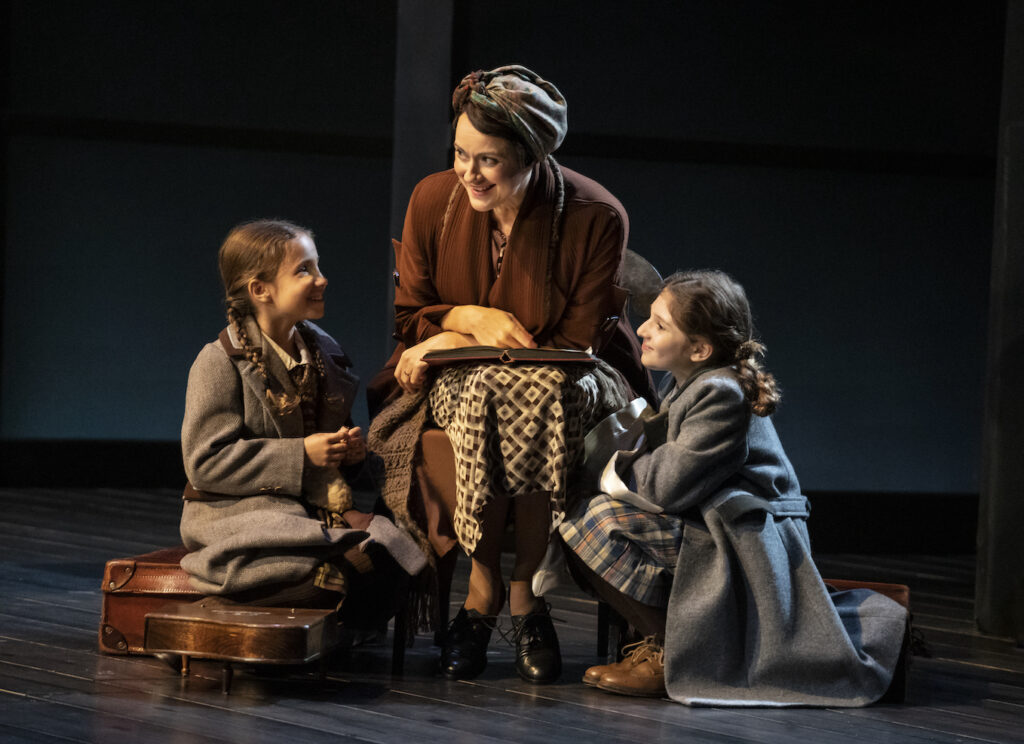

There is a moment in Leopoldstadt when a little boy named Leopold cuts his hand on a glass during the scene set on Kristallnacht. That little boy becomes Leo in Act 5, the assimilated British writer who still feels the pain of that moment. Leo—it can be said—is a version of Stoppard himself, acknowledging his past with humility, sincerity, and grace.
A postscript to this review: in addition to Leopoldstadt, there are numerous productions this year dealing with the Holocaust, including Remember This: The Lesson of Jan Karski at TFANA, Camp Siegfried at Second Stage, This Beautiful Future at the Cherry Lane Theatre, and the recent Prayer for the French Republic at Manhattan Theatre Club, as well as Ken Burns’s film documentary The U.S. and the Holocaust. Why this flood of new plays and films on the topic? Why now? It’s a question we must ask ourselves, urgently, in these threatening times.
Leopoldstadt. Through March 12, 2023, at the Longacre Theater (220 West 48th Street, between Broadway and Eighth Avenue). Two hours, ten minutes with no intermission. www.leopoldstadtplay.com
Photos: Joan Marcus


